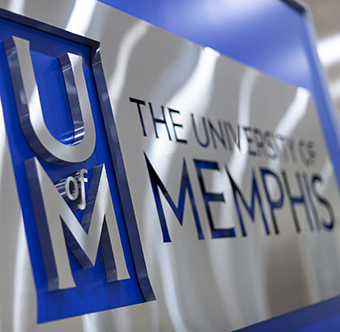David Ciscel is professor emeritus of economics at University of Memphis.
By David Ciscel
The University of Memphis is our local University. When the Wall Street Journal rankings of colleges and universities appeared last week, UM didn’t have big bragging rights. But UM is extremely important to the region.
There are several others that are also important – UT Health Sciences, Rhodes, CBU, and LeMoyne Owen.
Plus, there are several schools that offer courses and degrees in Memphis but this is not their home base. And there are the community colleges that prepare students for further education or provide technical/vocational skills for the labor force. Finally, Ole Miss and ASU are close enough to be considered local players in the higher education market.
But when it comes to delivering large numbers of graduates to the local and regional economy, the University of Memphis is probably the strongest growth engine in the region. And, though we don’t think about it often, the University is also probably the biggest antipoverty program in the region.
Look at the sheer size of the graduating class each year. This past year UM delivered over 4,000 graduates to the labor market. Many of those students graduate with considerable work experience, since UM is a University where students often work as they study for their degrees.
| 2007-2008 | 2017-2018 | Percent Change | |
| Baccalaureate | 2,442 | 3,136 | 28.4% |
| Masters | 875 | 912 | 4.2% |
| Professional | 126 | 106 | -15.9% |
| Doctoral | 107 | 158 | 47.7% |
| Total | 3,550 | 4,312 | 21.5% |
And note that the University does a modestly good job of preparing women and minorities for the job market. During the 2017-2018 school year, 60.9% of the graduates (all degrees) were women, that is, 2,672 educated women were added to the labor force.
same year 1,274 students who identified as African American also received degrees from the University. While number of black graduates is small relative to the size of the African American population in Shelby county, UM probably represents one the best producers of minority graduates outside the historically black institutions of higher education.
While the UM Office of Institutional Research maintains details on earnings of graduates, payscale.com provides a simple indication of median yearly earnings of UM graduates: $61,498 for a BBA, $66,848 for a BS and $55,015 for a BA. And graduate degrees pay substantially more.
Note that payscale.com reports that the average yearly salary in Memphis $47,240 (an income that includes college graduates). And the actual household income is only $38,826 in Memphis. Each year UM provides the local labor market with new highly trained individuals. They do well in the regional economy and provide a strong incentive for regional economic growth into the future. And each year, UM does the same thing over again – putting thousands of well-trained graduates into the regional labor market.
Note: The author worked as a professor of economics at the University of Memphis for 33 years.




It’s true that the University of Memphis isn’t much to brag about either in academics or athletics. It’s a very average state school that does help
out Memphis’ big problems with poverty and unemployment, but it lacks the clout, prestige and power of top-tier Universities in other cities. If only Memphis had an important institution like Vanderbilt in Nashville, Emory in Atlanta or Washington University in St. Louis.
The if only comments are a waste of time. We need to support UM to become research university Memphis needs. How do we elevate our assets rather for wishing for things that can’t be.
I think the UofM is clicking on all cylinders. This SAS FedEx partnership has huge potential and their online courses are high quality. This article contains much of the content that I was planning on blogging about but the MBJ wrote it first. I may expand on this MBJ article in the future which will be available for beyond the paywall for consumption – https://www.bizjournals.com/memphis/news/2018/09/05/with-fedexs-help-u-of-m-plans-to-become-largest.html
Memphis colleges are among the top 10 in the state with the highest average salary for graduates.
The ranking comes from SmartAsset, a New York-based financial technology company.
Christian Brothers University was No. 3 on the list, with an average starting salary for graduates of $48,800. Rhodes College was No. 5, with an average starting salary for graduates of $47,900. The University of Memphis was No. 8, with an average starting salary for graduates of $45,300.
No. 1 in the state was Vanderbilt University, with an average starting salary for graduates of $61,100.
SmartAsset looked at five factors to determine the best-value colleges and universities: tuition, student living costs (including room and board, books, supplies, transportation and other personal expenses), scholarship and grant offerings, retention rate and starting salary.
If only we had a university similar to Vanderbilt, Duke, Emory, Rice or Baylor where the universities and their huge medical centers are among the very best and highest paying employers. St Jude, LeBonheur and UTM pale in comparison in contributions to our local economy. UM is an average state school. I’m sure Ole Miss contributes more to our regional economy and jobs than UM.
It’s pointless to talk about things we don’t have and can’t go back in time to create, unless you’re just a miserable, relentless troll.
Anonymous: My sense is UofM doesnt get enough credit. For example, a family member of mine who worked in the TN Department of Education said that the UofM consistently produced the best new teachers. But with that said the UofM is on an upswing and doing pretty well. The UofM is certainly not holding us back and I believe is moving us forward while accelerating the pace….